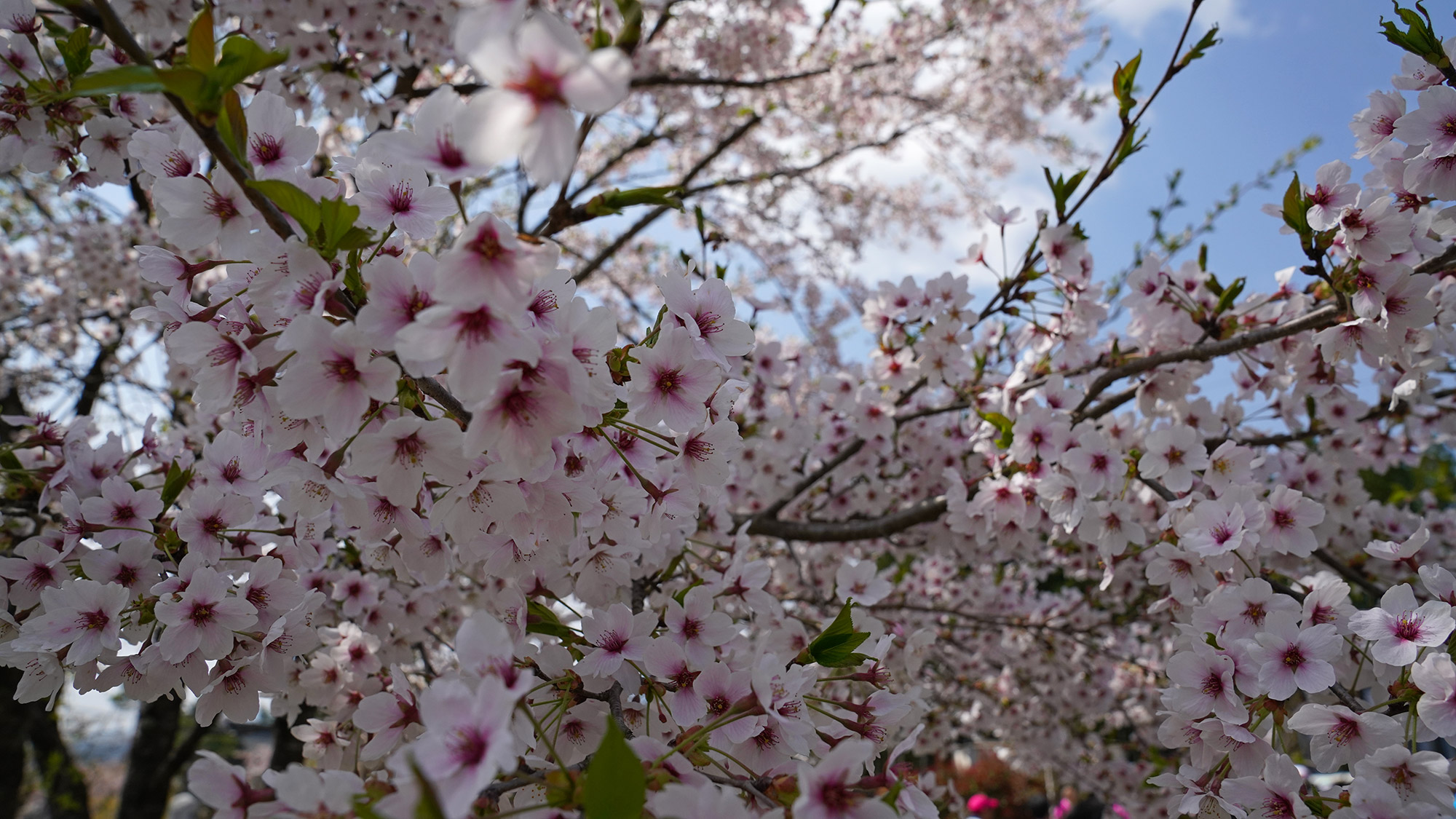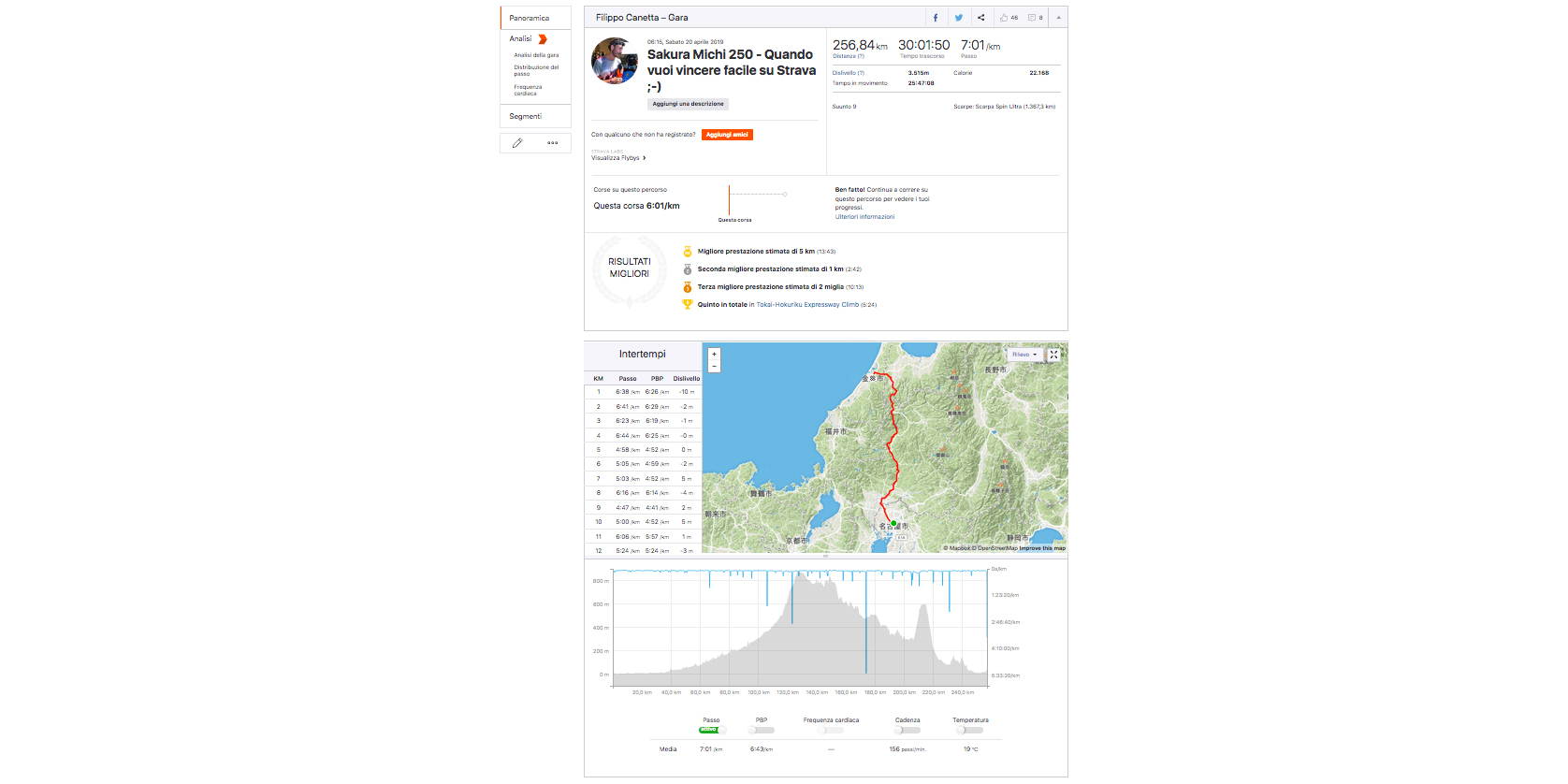The idea of running the Sakura Michi had been in my mind for so long that I couldn’t even remember where I’d first read about the race. The image I had was very poetic—I pictured myself running like a gazelle on a soft carpet of cherry blossom petals for 250 kilometers.
Brain: "You’re deluded. You run more like a hippo."
Is a matter of fact, the story behind this race is quite fascinating. Years ago, bus driver Sato Ryoji had to stop his bus one day, due to roadworks along his usual route from Nagoya to Kanazawa. He noticed that workers were uprooting a 400-year-old cherry tree to make way for the construction of a new artificial dam. Every day, he went to check if the roots of the ancient tree had taken hold in its new location. So moved was he by the strength of the tree that he began planting cherry trees along the route he drove through every day. Sadly, Sato passed away at just 47, leaving his work unfinished. For the past 26 years, people have honoured his dream by running the 250 kilometres that separate Nagoya from Kanazawa while the cherry trees he planted are in full bloom.
"Dreaming of running 250 kilometers is not the same as actually running them."
But I’m a dreamer, and I was curious to see if I was still capable of pulling it off.
I rang a friend who works at Yamaha and asked if he could kindly have a colleague in Japan call the only phone number listed on the race’s website, which was entirely in Japanese. That’s how I got in touch with Hogo-san and, thanks to my previous participation in the Spartathlon, I was accepted into the small group of foreign runners registered for the race.
"Now comes the hard part—you’ll never train enough for a race like this. Even if you have some good memories, three years have passed since the Spartathlon, and you’re just an old wreck by now."
I decided to try anyway. I started running as much as I could during any free time I had. It isn’t easy to prepare mentally for running 250 kilometers. The goal always seems far beyond what I’m capable of. Without troubling my family too much, I took part in the 12-Hour Castle Run in Brescia as a test, on a scorching day. The experience helped me. I set off cautiously, acquainted myself with the 1.8-kilometer loop, pushing harder during the cooler hours to gain a bit of an edge, slowing down during the hottest hours while drinking regularly, and trying to speed up in the final hours to see how much I had left in the tank. I was feeling good and finished savouring a lonely last lap.
Well, you ran 118 kilometres, you’re exhausted, and you wouldn’t even be halfway there."
With Wild Tee, we compete every year in the stunning Cinque Terre race. I love Sciacche Trail—the course is gorgeous and it’s challenging, the organization is top-notch, and international participants abound. I hadn’t run much on trails before then and was a bit worried I wouldn’t be up to the task. I started slowly, but as the leaders slowed down, I found myself competing for the podium.
"Well done, you ran a nice little race. Now you’d be at kilometer 50—how are you feeling? Just think, there’d still be over 200 to go."
Planning the trip was complicated. I could only travel the day before the race with my son Claudio; the rest of the family would join us after the race. Claudio would follow the route on an organization bus, but it wasn’t clear yet if or when we’d be able to meet.
"It’s the first time you and he are alone at a race—try and keep a shred of dignity. Don’t let him see what you’ll look like after 30 hours. Seriously. What will the poor boy think?”
The time had come. All that was left to do is prepare some drop bags for the aid stations—outside assistance is forbidden during the race.
"Well, at least we’re all in the same boat."c
The ceremony (entirely in Japanese) is extremely formal. On one side are the race organizers in their pink jackets, and on the other side, the politicians in their black jackets. Each gave a short speech, none of which I could understand, but the ritual gave me a sense of reassurance. Everything is in its place in Japan, and I imagined the same would be true in the race.
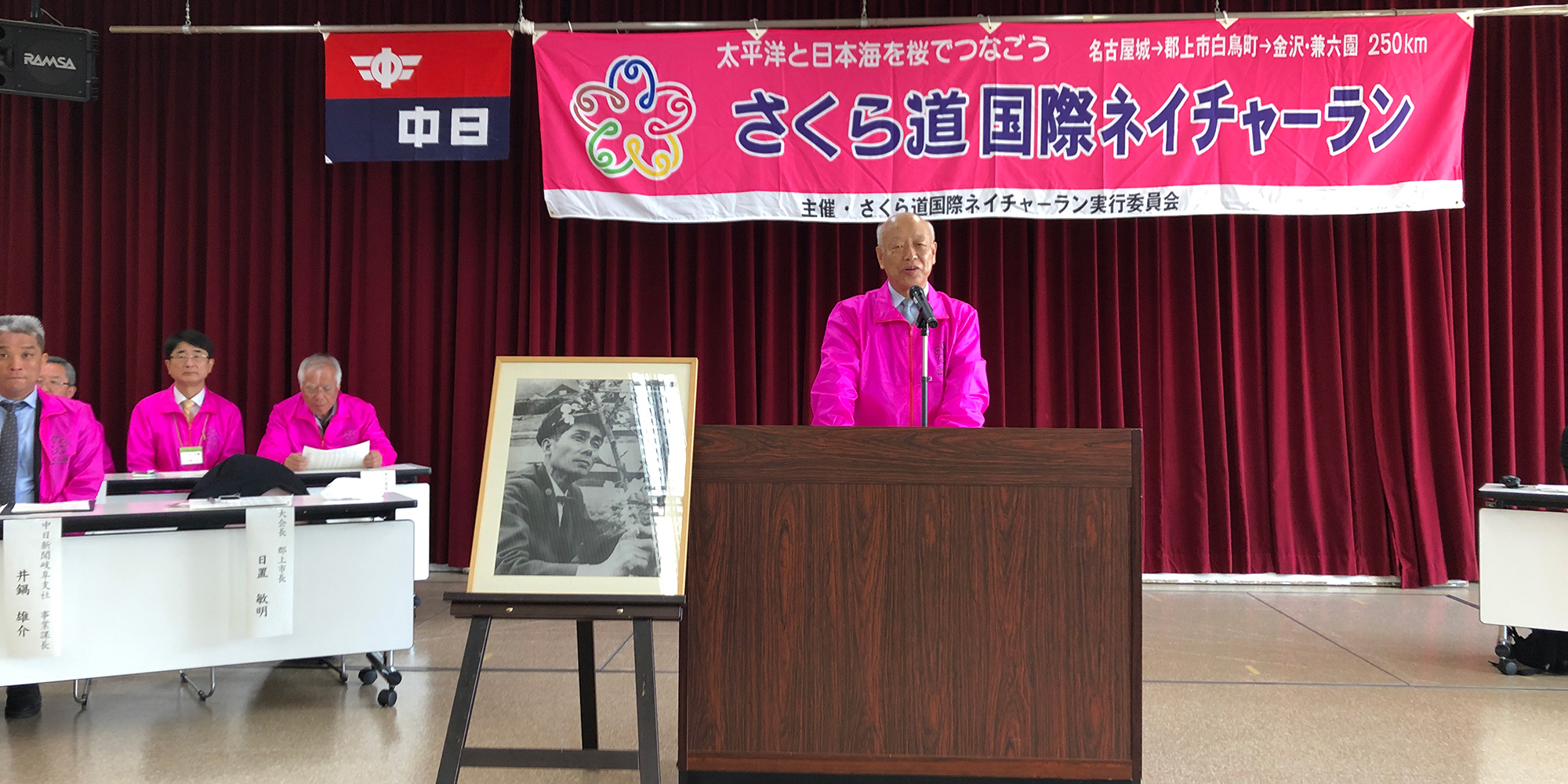
The night before, because of jet lag, I’d only slept an hour before the alarm went off at 4am.
Looking out of the window, I was gifted with a magnificent sunrise over Nagoya Castle. Finally, the wait was over. All I needed to do was run and see if I could make it to the other side of Japan.
Ultimately, what I like is exactly this: the challenge of trying to do something that seems, at the very least, difficult if not impossible.
After a quick and composed ritual, again entirely in Japanese, we set off in waves, three minutes apart. I was in the second-to-last wave, with the last reserved for the fastest runners.
"Stay calm. Anyone can run fast for the first 50 kilometers—not many can do it for the last 50."
The first few kilometers always feel strange, a feeling heightened by the strict rule that we must stop at all traffic lights. The snake of 120 participants bunched up and then broke apart at each of the thousand stoplights. There was nothing else to do—even though I’d have liked to keep running before the heat intensified, I stopped and waited. Some of us killed time with light stretching, trying to guess who among us would finish first.
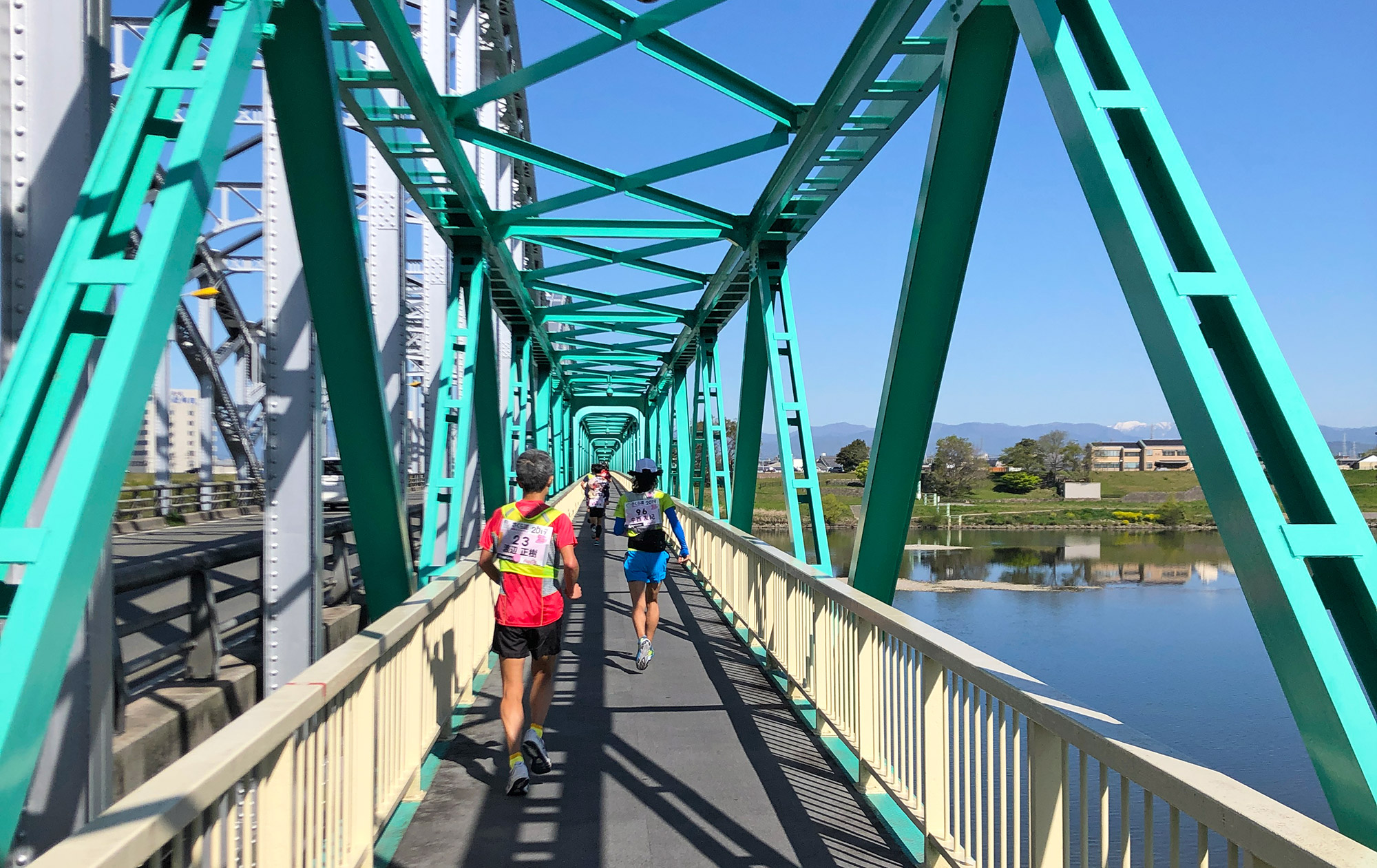
I decided to run alongside a Japanese lady whose short, quick steps I admired. She was clearly not there for a leisurely stroll and might be a good reference point for me. Indeed, when a strong Hungarian runner (a Spartathlon winner) overtook us, the Japanese woman increased her pace to stick to her. Once the ordeal of the traffic lights was over, the Hungarian runner accelerated, and we let her go—there was no point in taking risks so early.
"What are you thinking? These women are here to win the race, not drag themselves along like you. Just let it go."
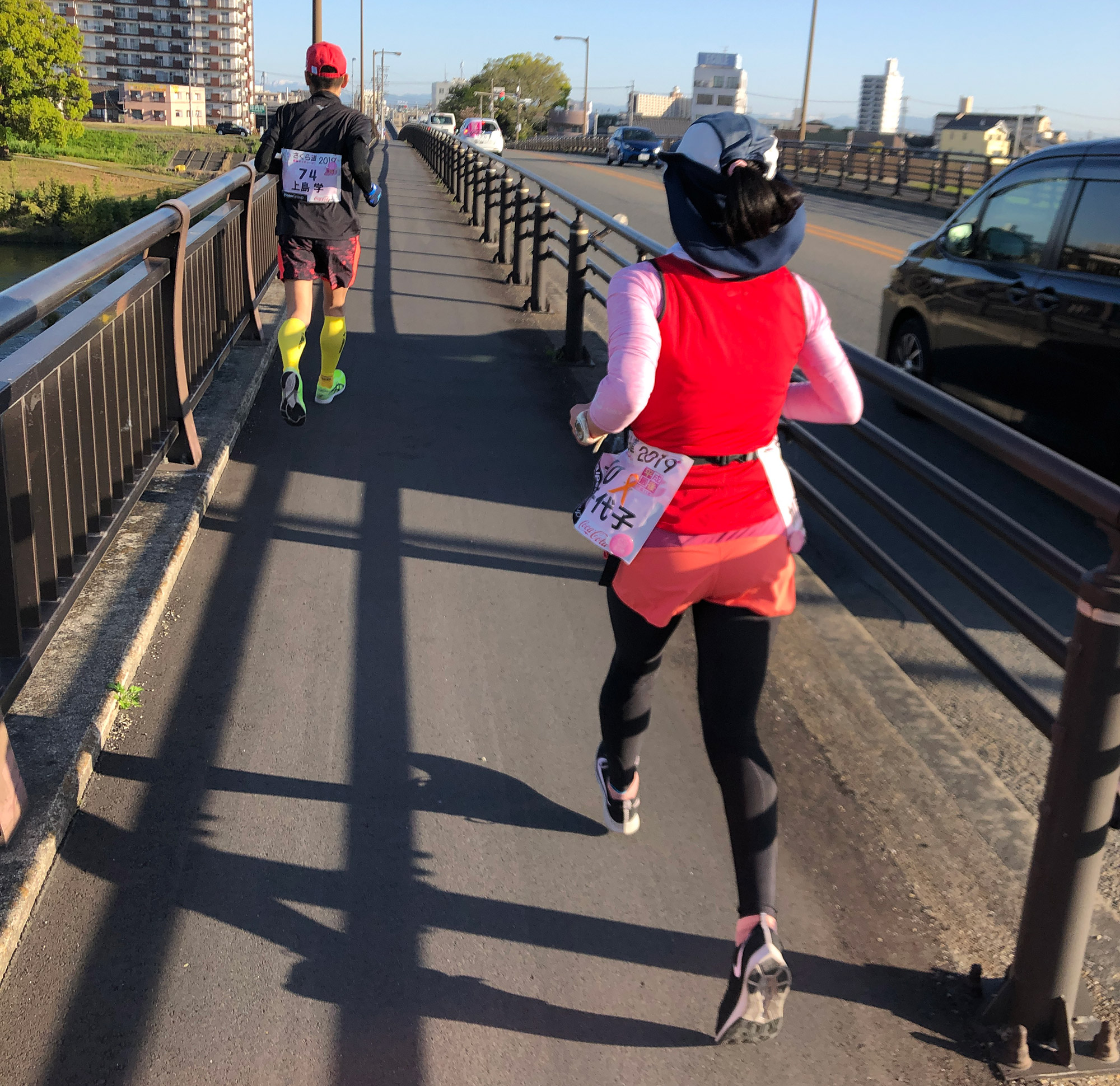
Overcome by that strange sort of bulimia that affects runners, I stopped at every aid station. They were exceptionally well-stocked with fruit and onigiri—the best sustenance for my poor stomach.
"Of course, you need to eat—don’t make the usual mistake. If all goes well, we have about thirty hours and 20,000 kilocalories to burn."
The sun was burning my skin, and I doused myself with water as much as possible to maintain a reasonable body temperature and conserve energy. I tried counting the cherry trees I was passing to distract myself and to find my rhythm, but I quickly lost track.
"What do you know about the pace you need to keep over this distance? I’m already tired."
The trees were now more frequent, but their pattern was disrupted by the advancement of urbanization. It wasn’t quite the neverending tree-lined avenue I’d imagined.
"Welcome to reality. Things are never like you imagine them."
The kilometers went by as I moved deeper into the heart of the nation, realizing how Japan constantly balances tradition and modernity. In the villages I crossed, I often saw elderly people in traditional clothing and wooden clogs, bent over as they were weeding the small rice paddies in front of their homes. They don’t buy rice—they grow it in their own gardens. Around the corner, however, one could find car dealerships displaying hydrogen-powered vehicles (which might become a thing here in twenty years). While city life, alienated by exhausting work rhythms, leans heavily towards modernity, rural Japan still holds tightly to its traditions and the rhythms of nature.
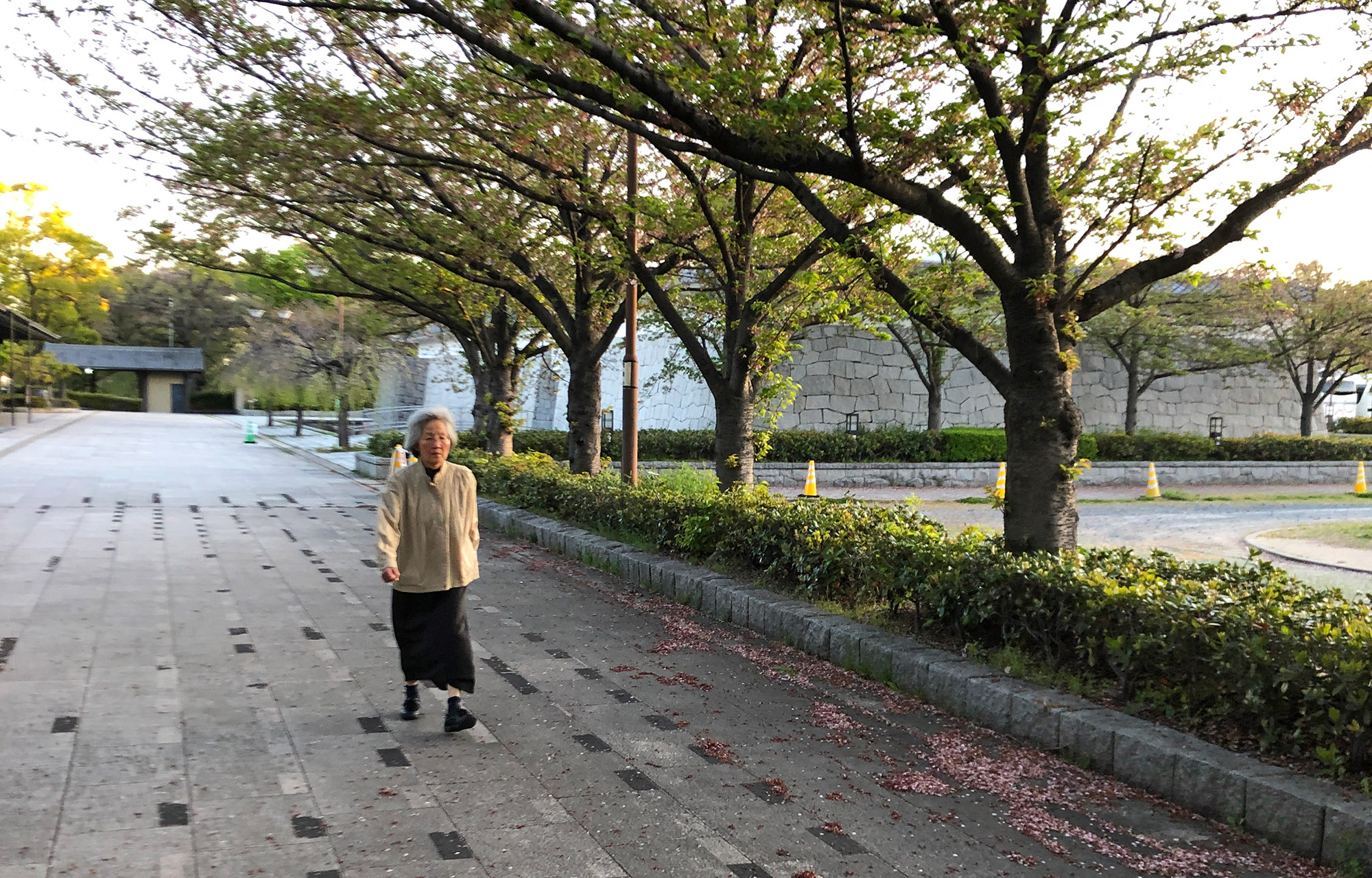
Above the bed of a river, two eagles were playing a game of tag, chasing, tagging, and dodging each other. I was jealous of their effortless gliding.
The kilometers passed by—50, 100. My cruising speed was still ok, but I was starting to feel a little tired, struggling to tell the hours of the day, partly because of the time zone difference.
I reached the most critical checkpoint (the tightest, according to my calculations) at the 110 km mark with a good margin. It was time to start the climb that would take me to the highest point in the race, halfway through it.
“It’s time to stop. Leave this race behind before it’s too late.”
The sun sets early in the East, and it would soon be dark. I grabbed my headlamp, turned on the lights attached to my bib as per regulations, and put on a long-sleeve shirt.
“You’ve made your first mistake. It’s still hot, and you’re sweating like a pig.”
Perhaps I’d lost some clarity. I took off the long-sleeve shirt, running shirtless for a while, hoping no one would see me—heaven forbid the regulations (written in Japanese) prohibited it. When I spotted someone from the race, I put the shirt back on; as soon as I was alone again, I removed it. A probably unnecessary effort.
“You’re not even halfway through, and you’ve already lost your mind. Give up.”
Fortunately, as I climbed the mountain, the temperature dropped and I could comfortably keep my shirt on.
By evening the traffic subsided, leaving us alone on the road, which magically fell silent. In the light of the sunset, the pale pink cherry blossoms were glowing as if that was their moment to shine—not when they were being scorched by the sun’s rays.
The aid stations were set up inside workshops, carpentries, and workspaces—warm, welcoming places where many gathered to watch the runners pass. On the tables, packaged products gave way to freshly cooked items. At one point, I was sure I could see scallops sizzling on a grill. The kindness of the volunteers always made me uncomfortable; rarely did I need what they offered, and it pained me to refuse their constant gestures of generosity.
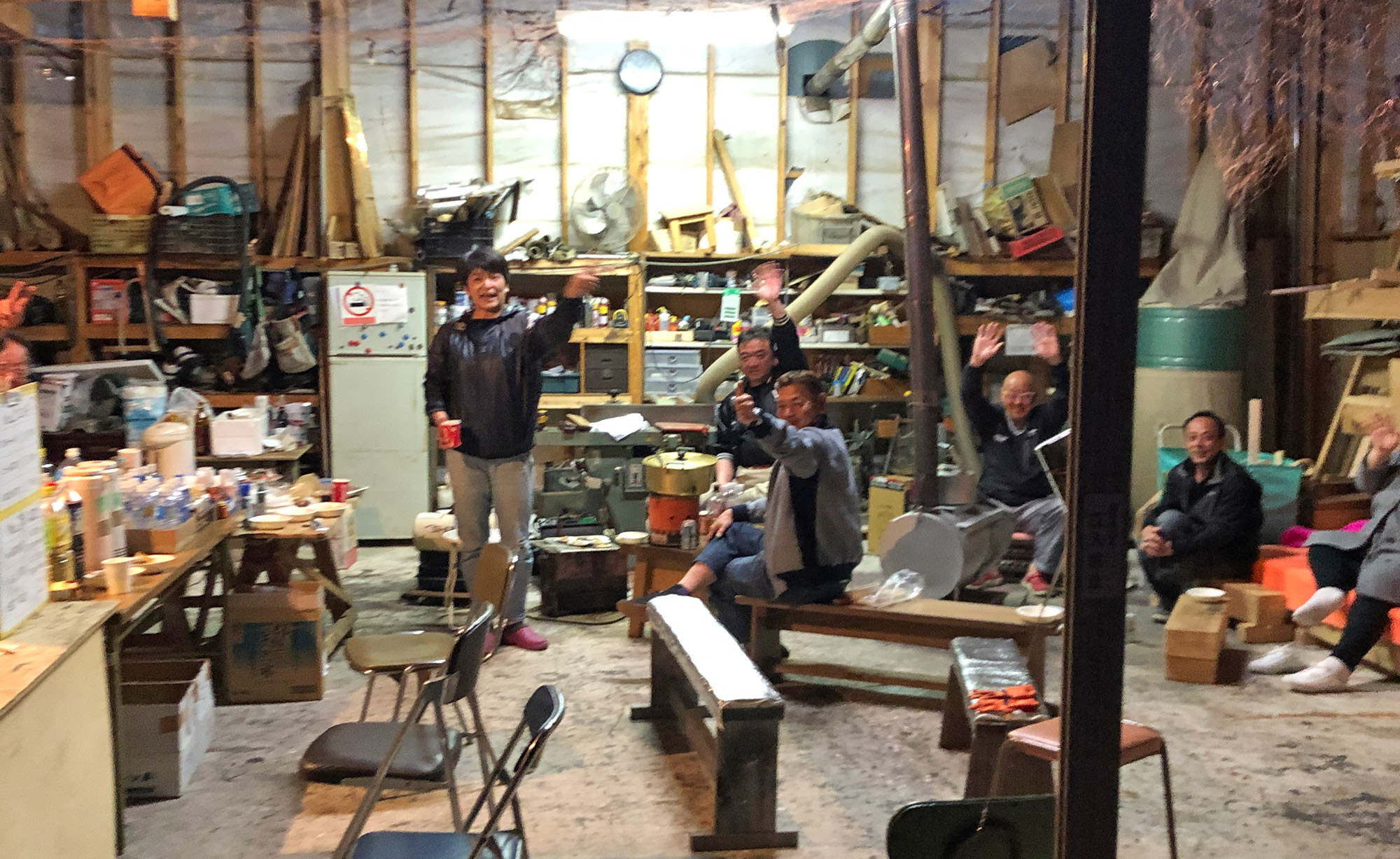
It was hard to resist what, for an ultrarunner, represents the sirens’ song to Ulysses.
“You’ve just offended five Japanese when you turned down a cot and rushed off without even a proper goodbye.”
All the competitors seemed well-prepared, showing no signs of faltering.
I reached the mountain summit, where I retrieved a backpack filled with warm clothes for the night and a more powerful headlamp.
Apparently, the hardest part of the race had passed without issues. Above me, through the trees, the full moon was shining down on us. I was feeling incredible. Rarely do I use headphones while running, but I wanted to savour the moment. The descent began gently, and the music intensified my emotions. I felt like I was flying—a perfect moment worth all the effort. In full runner’s high mode, I overtook a couple of competitors.
“Well done! Be a show-off now… let’s see how you feel at the end of the descent.”
I didn’t care about the consequences. Even if I couldn’t run anymore after this. Right then I was feeling alive, and I was running at full speed—fatigue wasn’t a factor.
After several kilometres, the course is made of long stretches of rolling terrain interspersed with endless tunnels cutting through the mountains of Japan.
I lost track of time. The change between the night’s darkness and the artificial light of the tunnels made me feel off-kilter. I was befuddled.
“Thanks to the time zone difference, you haven’t slept for two nights. Day and night are practically flipped. You need to sleep!”
As it often happens when balance is broken, problems arise. In the tunnels, the temperature was 20 degrees Celsius; outside, it was 3 or 4. I lacked the lucidity and energy to change clothes as I entered and exited. Or rather, I tried but messed up the timing—layering up in the tunnels and shedding layers as I exited.
“You’re done. Admit it. It’s over.”
I had to acknowledge the irrefutable evidence: I’d got cold, and my stomach was hurting. I needed to stop once, twice, three times—I finally convinced myself I needed to find a solution. The fear of failure jolted me awake. I stopped to piece myself back together. I changed clothes properly—a step I should have taken hours ago—but I couldn’t eat. I lay down on a cot - something I’d managed to avoid until now.
“Well done. I had to give you a stomach ache to make you stop. You can’t burn all this energy.”
I set an alarm and even asked to be awoken in 15 minutes. It took me a moment, but I did fall asleep, knowing things would be better afterward.
Getting up, leaving the warmth of the cot, and resuming in the dead of night was no easy feat.
PGradually, my legs warmed up and started moving again. My stomach wasn’t ok, but I managed to maintain a respectable pace. Unable to eat anything, I skipped aid stations to save time. I hadn’t seen another competitor in ages. The villages I passed were completely asleep—not a single light behind a window. I was alone, but as long as I kept moving, the solitude didn’t weigh on me. It felt like the villages were scrolling past me on a screen while I remained stationary.
“You’re hallucinating. You’re just alone in an unfamiliar place where no one will find you if you go off route.”
I had to hold out until dawn. I knew well that the return of sunlight would bring with it a renewed load of energy.
I met Claudio, who, seeing my face, kindly told me I was on pace. I disagreed, saying I’d miscalculated and was actually behind.
“You’re right not to believe it. You’ve screwed every calculation and won’t make it to the other side. You probably look like death warmed up. At least try to be nice when you meet him.”
When the numbers don’t add up, everything feels harder than it actually is. The only thing to do is break the problem into smaller, manageable pieces—reach the next aid station, then the one after that. After what felt like an eternity, I could no longer make out the beam of my headlamp on the road. The sun was about to rise. I briefly stopped to test my stomach with some soup and tackled the last big climb. Thankfully, it was steep enough to make running impossible. I realized, to my own astonishment, I’d been running from the start. I began walking. The effort level dropped, and a peculiar weariness overcame me.
“If you slow down, you’ll fall asleep.”
I struggled to keep my eyes open. Even when they were, my vision was a blur.
“You’re falling asleep. Lie down for a moment.”
I knew that if I lay down I wouldn’t get back up and would end up regretting it. Staggering, I reached the summit. A few spectators cheered me on enthusiastically, even though my face wasn’t exactly cheerful.
In a burst of anger, I started running again, hoping to leave the hard times behind.
I entered a tunnel and remembered having heard about it. At 6 kilometres long, I hoped it would be the last before the descent to the sea. When you drive through a tunnel in a car, you don't realise how claustrophobic and noisy it can be. My iPod had been dead for a while. Every motorbike, car or lorry that overtook me made a deafening noise on the concrete road surface. The echo of this noise lingered in the tunnel and in my ears for several minutes. I concentrated on avoiding the iron posts with reflectors marking the narrow pavement I was running on. Every 50 metres, I needed to take a step to the left to squeeze between them and the wall. I cursed and screamed in anger at this ordeal, which lasted for more than half an hour.
“"What are you complaining about? You wanted to run a road race; here you are.”
I quickly assessed the situation. There were less than 50 kilometres to go and the hardest part was over.
“Fifty kilometres is still a long way to go and anything can still happen.”
I often reach a point where all doubts about a negative outcome disappear, and I run without thinking about the consequences. This time, too, I got there after a few difficult moments. It was as if the low points were made to conserve energy for the grand finale.
“Hey smarty pants, I'm the one doing the calculations, and I have to keep a certain safety margin by slowing you down so we don't get killed.”
At that moment, my mind and body were finally aligned, and the finish line seemed closer than ever.
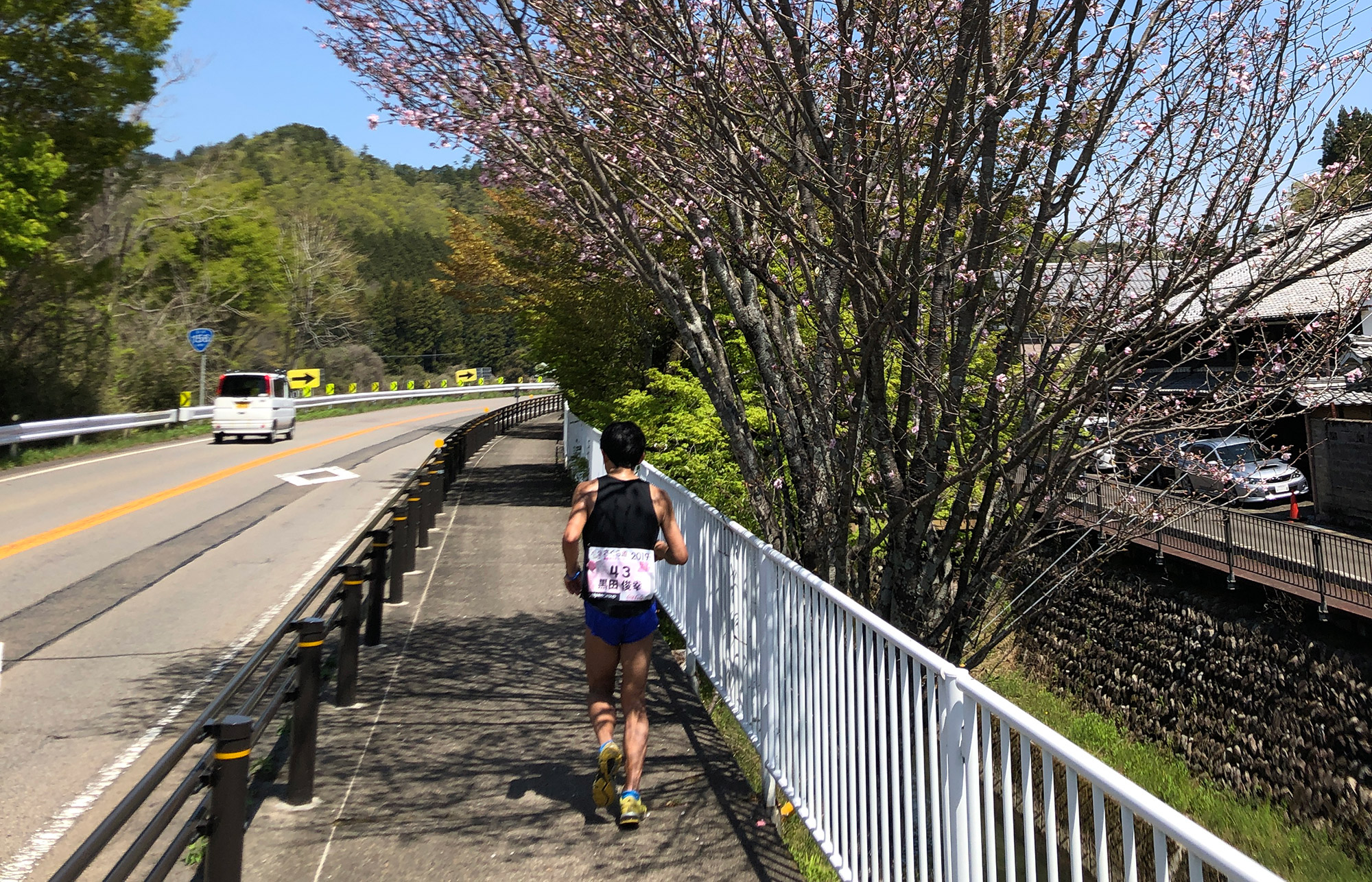
I began to catch up with the other competitors and I could see the signs of deep fatigue on their faces. As I passed them, we exchanged a quick nod and a faint smile. They knew that they were somehow going to make it to the finish line.
“Actually, all things considered, you're doing well. You can do it.”
In a full competitive trance, I grabbed my last drop bag at the last refreshment station — the one for special occasions. I left my overnight gear and put on my beloved Bryce Shorts, a Hawaian T shirt — we were going to the beach, after all — as well as a pair of super-fast Hoka Tracers. My new Rockies Socks were perfect, so I didn't even need to change them. I grabbed my water bottle and started running again as if it was the last day on earth. Even the uphill sections felt easy; I felt like I was flying.
“Don't overdo it now; you're running well, but you're not flying.”
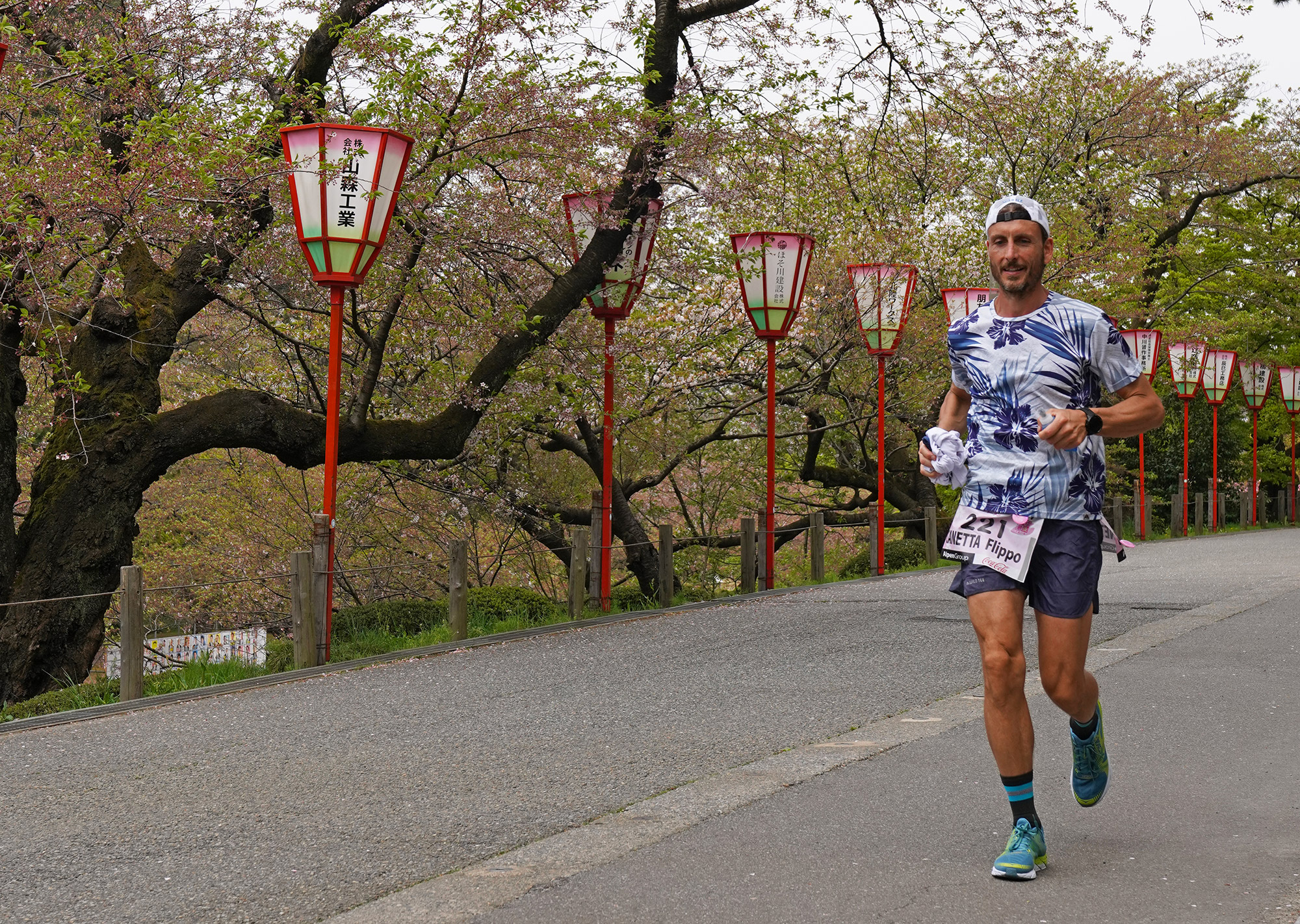
I calculated that if I hurried, I could still finish in under 30 hours — a time that, in my mind, represented the fine line between doing well and doing badly.
I met Claudio, and without stopping I told him I'd see him at the finish line. He seemed relieved.
“I wonder what he thinks of you?”
Being able to run well the last few kilometres of a 250-kilometre race is brilliant. This is the memory that would stick in my mind, not the difficult moments. Without stopping even once, I reached the avenue leading to Kanazawa Castle, which was adorned with cherry blossom.
“I have to admit that, in spite of the circumstances, you've done it again.”
